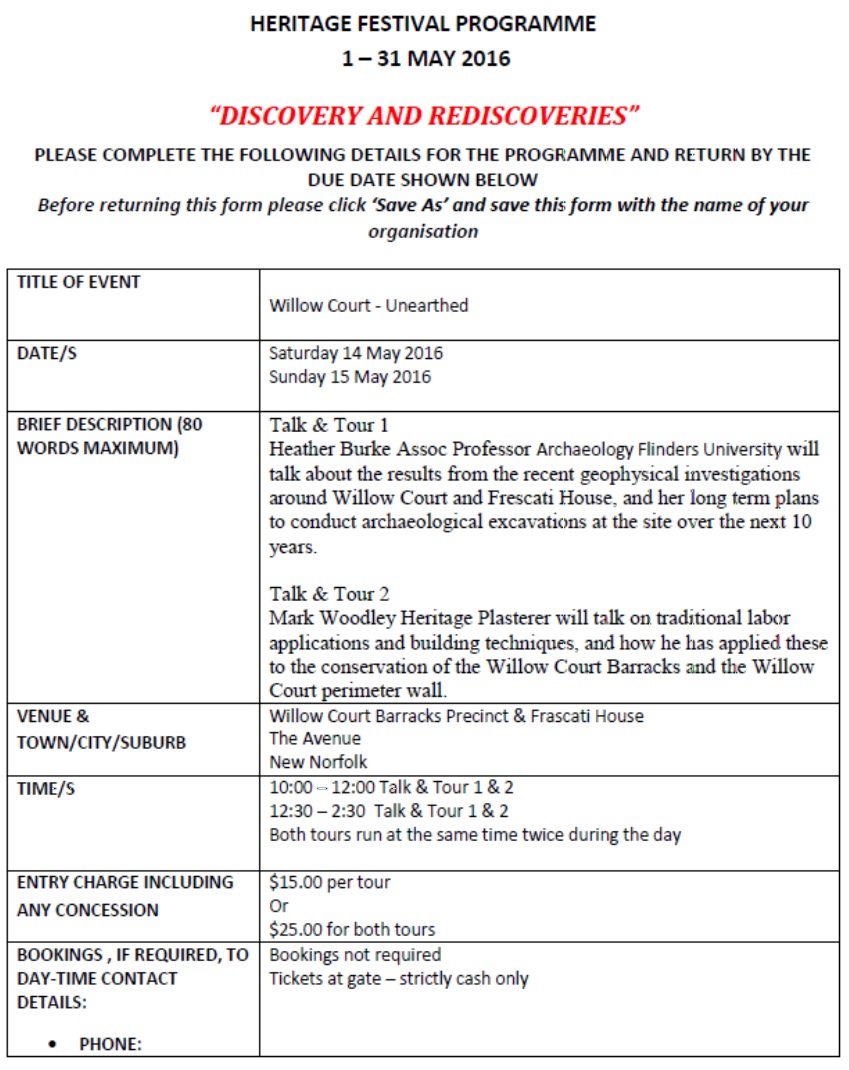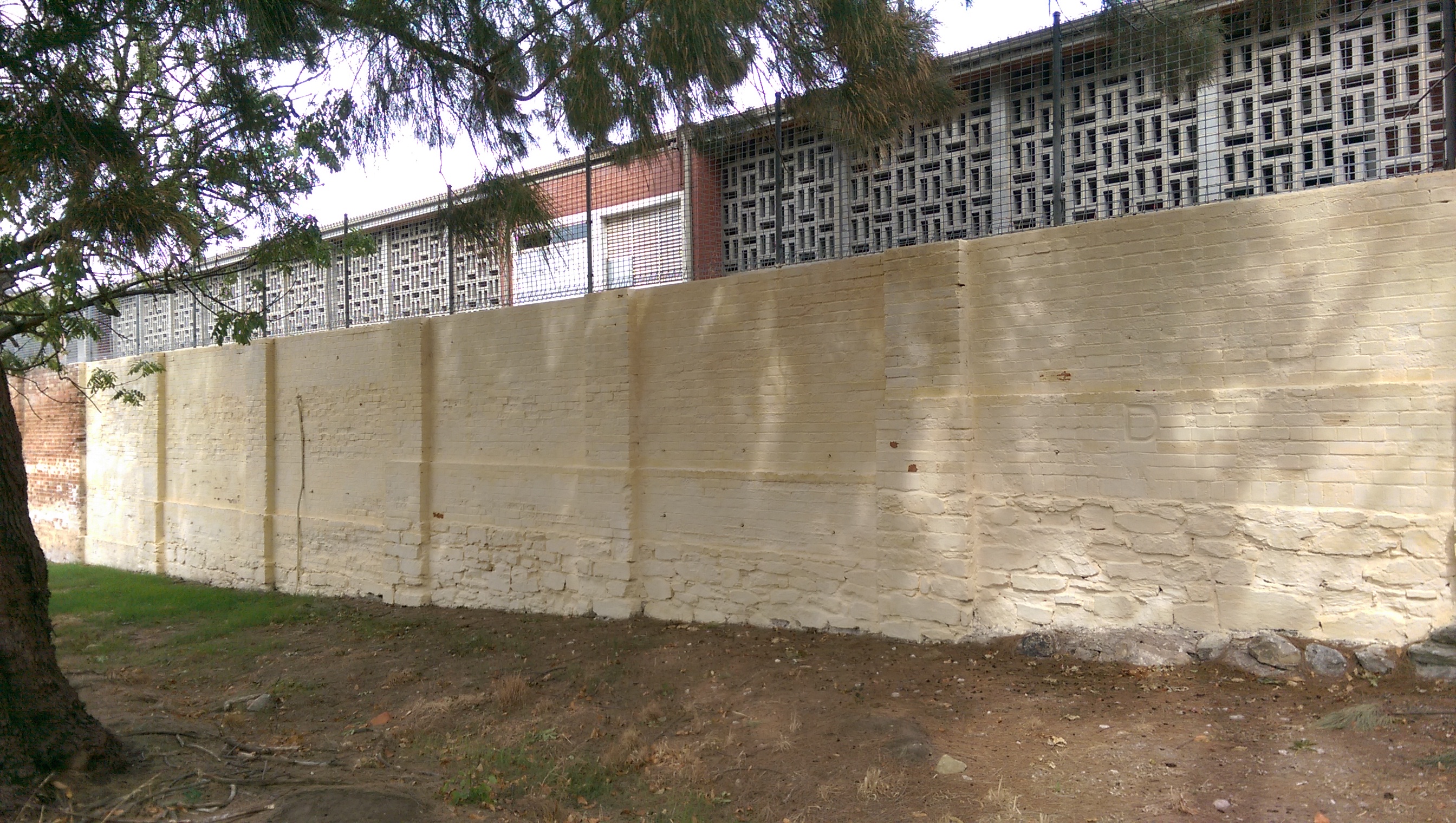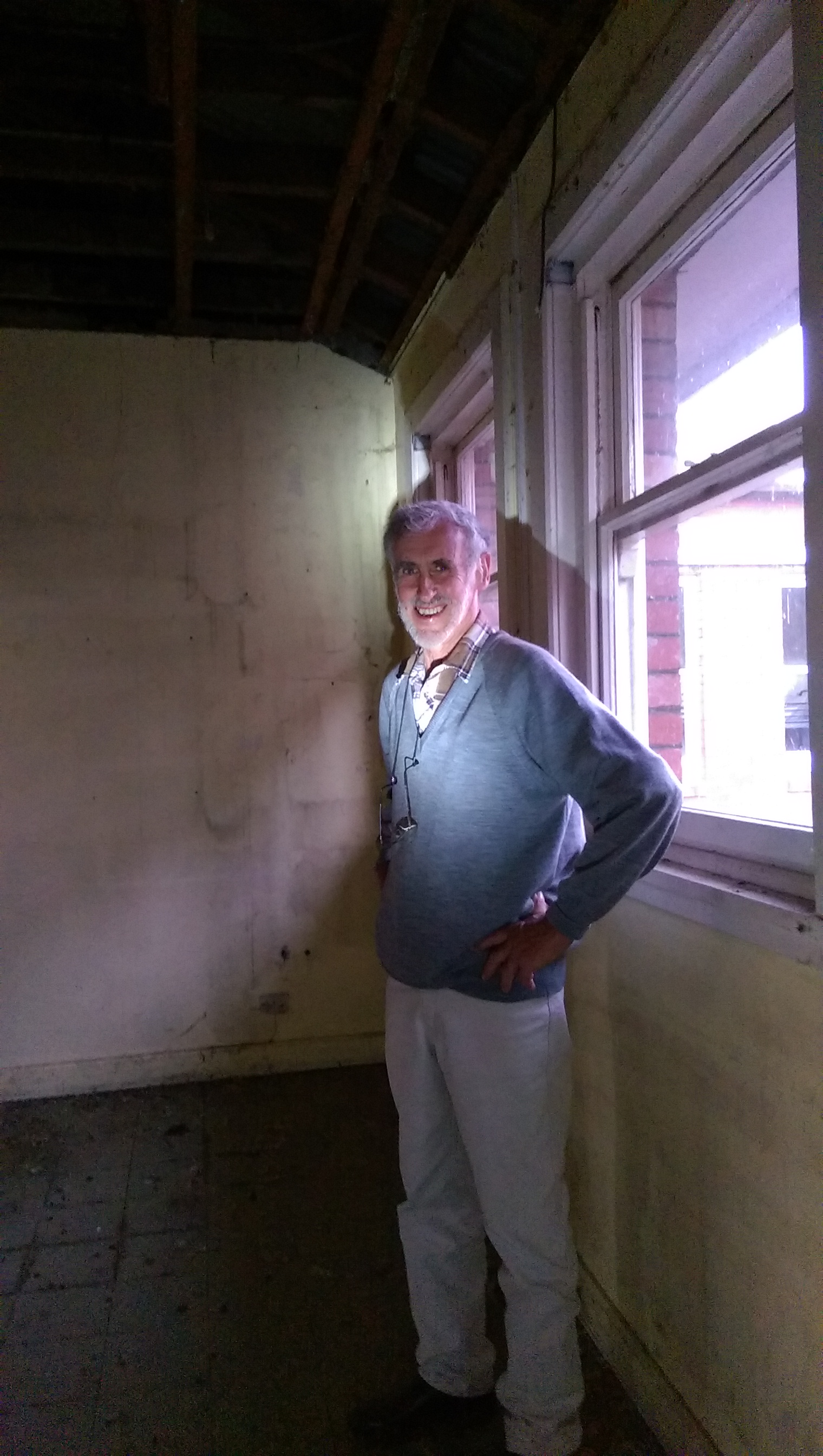 It’s been twenty years since Tony Nicholson has returned to his old office on the second floor of the Administration building at Willow Court Training Centre. While we had a tour hosted by Ruben Cortes about the current state of the building and its restoration and repurposing, Tony was able to tell the Friends of Willow Court Committee and representatives of the Willow Court History Group about who occupied each of the rooms and their uses during his history as an employee of the hospital. It was a very insightful tour and it was interesting to see Tony as he entered this room after twenty years.
It’s been twenty years since Tony Nicholson has returned to his old office on the second floor of the Administration building at Willow Court Training Centre. While we had a tour hosted by Ruben Cortes about the current state of the building and its restoration and repurposing, Tony was able to tell the Friends of Willow Court Committee and representatives of the Willow Court History Group about who occupied each of the rooms and their uses during his history as an employee of the hospital. It was a very insightful tour and it was interesting to see Tony as he entered this room after twenty years.
Like many staff the place was filled mostly with good memories, funny stories and struggles with consecutive Governments for the basics needed to support the many people that called Willow Court Training Centre\Royal Derwent Hospital home.
Since the closure, Tony has had a passion for the site and it’s history. He has wished only for a honest recording of history and has conducted many tours to educate people from historic societies, educational institutions and the general public. He has remained on the Friends of Willow Court special committee of the Derwent Valley Council. The Derwent Valley Council are the current owners of the Heritage Precinct area.
Tony has been a valuable historic consultant to this Willow Court History Group, our website and has helped many people who have contacted me through the facebook page and website in an attempt to find out information about the history. His knowledge of the early history of convicts and the military presence is second to none.
He has also been a part of the Derwent Valley Historic Society and has been a co-author of many historic books and articles that the group produce. Because Willow Court\Royal Derwent Hospital was a large employer for over 174 years most historic books have something about the hospital and how it fitted into the fabric of the community of New Norfolk and surrounding areas.
He also has been involved in cataloging many of the artifacts that came out of the hospital after it’s closure in 2000. He has, along with the Derwent Valley Historic Society manage many general community and hospital memories through artifacts, papers and displays.
Last year we revealed that the Friends of Willow Court Member, Mr Anthony David (Tony) Nicholson, of Lachlan, has been awarded the Medal of the Order of Australia (OAM) for service to local government and to the community of the Derwent Valley. Tony had served as Mayor on the DVC for a number of years.
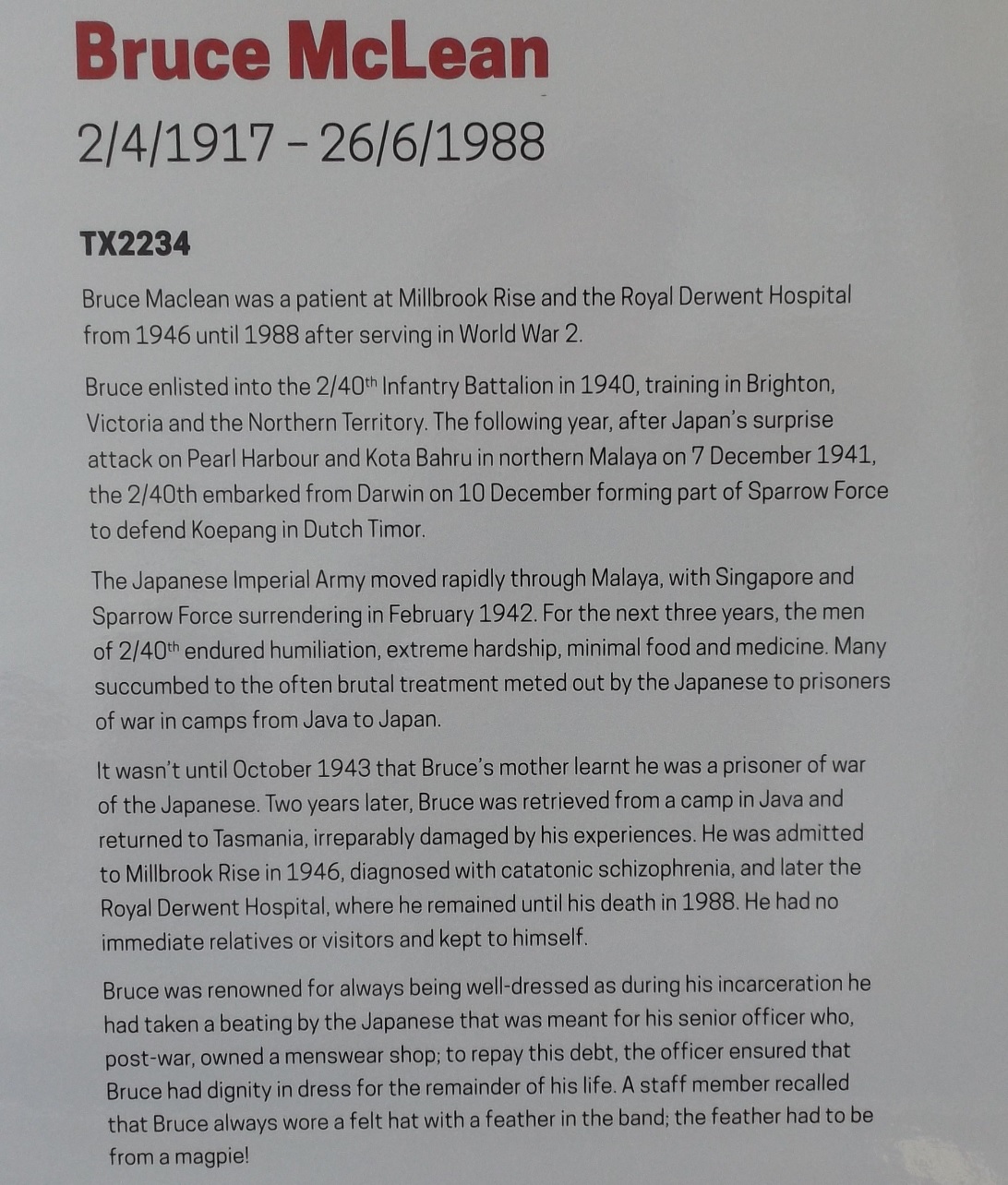
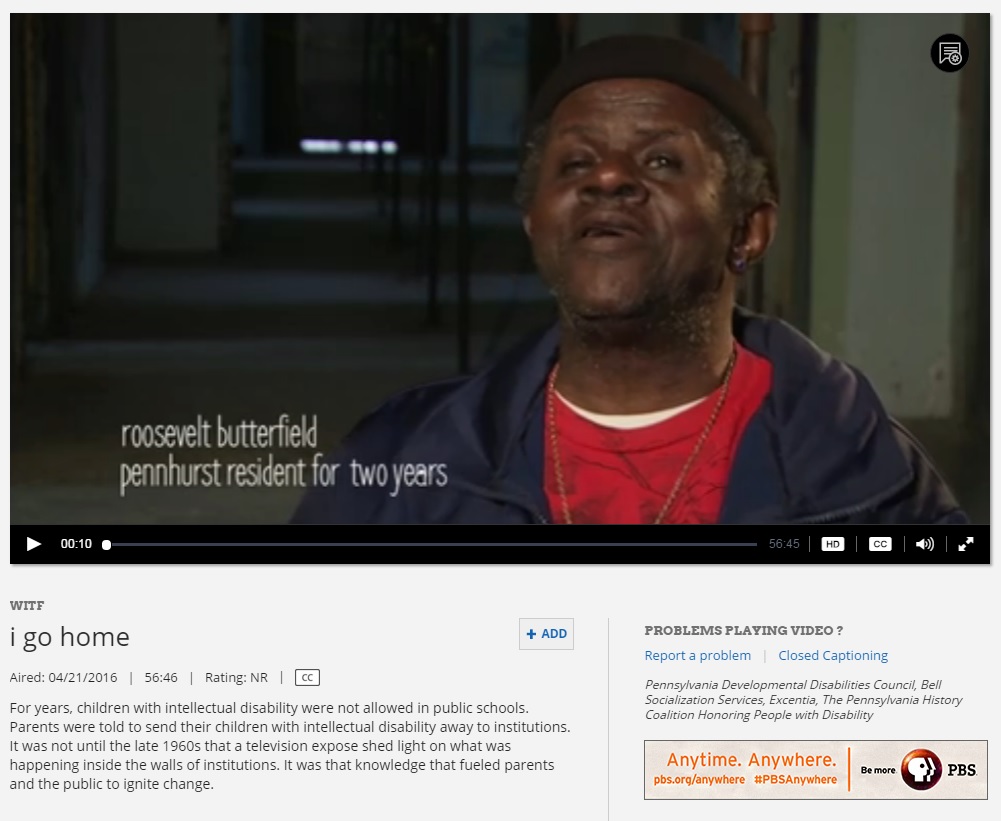

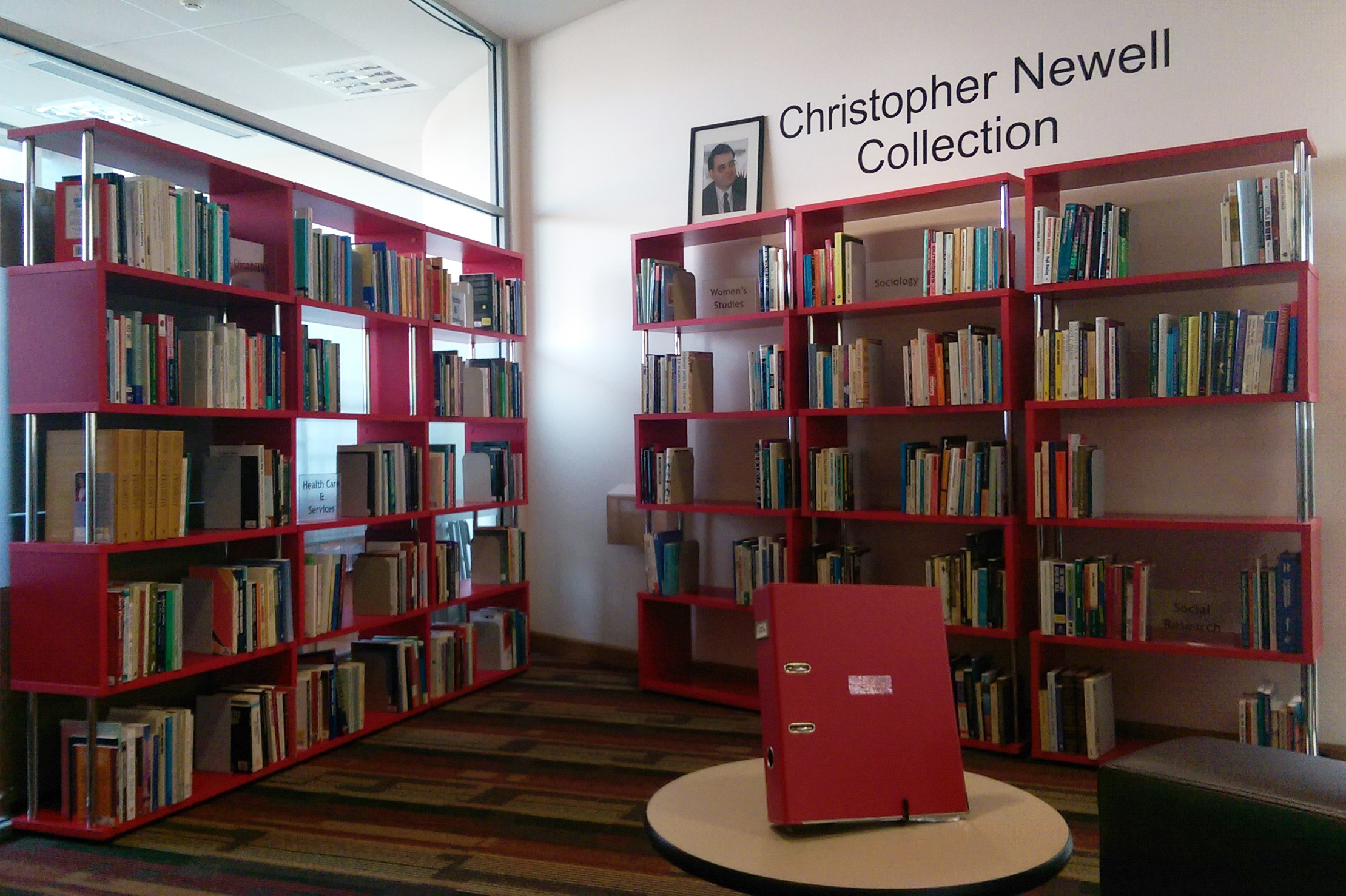 This collection of books and papers, some written by Christopher Newell are now available for public viewing at the TasTAFE Clarence Library. One third of his private Library was donated to TasTAFE some time ago and has been catalogued into this small collection. The remaining collection was donated to Trinity College Melbourne. Christopher Newell held the position of Associate Professor in bioethics at TasUni medical school, he was also known as the Reverend Cannon Christopher Newell and was on the staff at Hobart’s Anglican Cathedral.
This collection of books and papers, some written by Christopher Newell are now available for public viewing at the TasTAFE Clarence Library. One third of his private Library was donated to TasTAFE some time ago and has been catalogued into this small collection. The remaining collection was donated to Trinity College Melbourne. Christopher Newell held the position of Associate Professor in bioethics at TasUni medical school, he was also known as the Reverend Cannon Christopher Newell and was on the staff at Hobart’s Anglican Cathedral.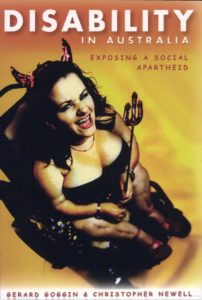
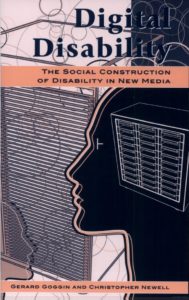
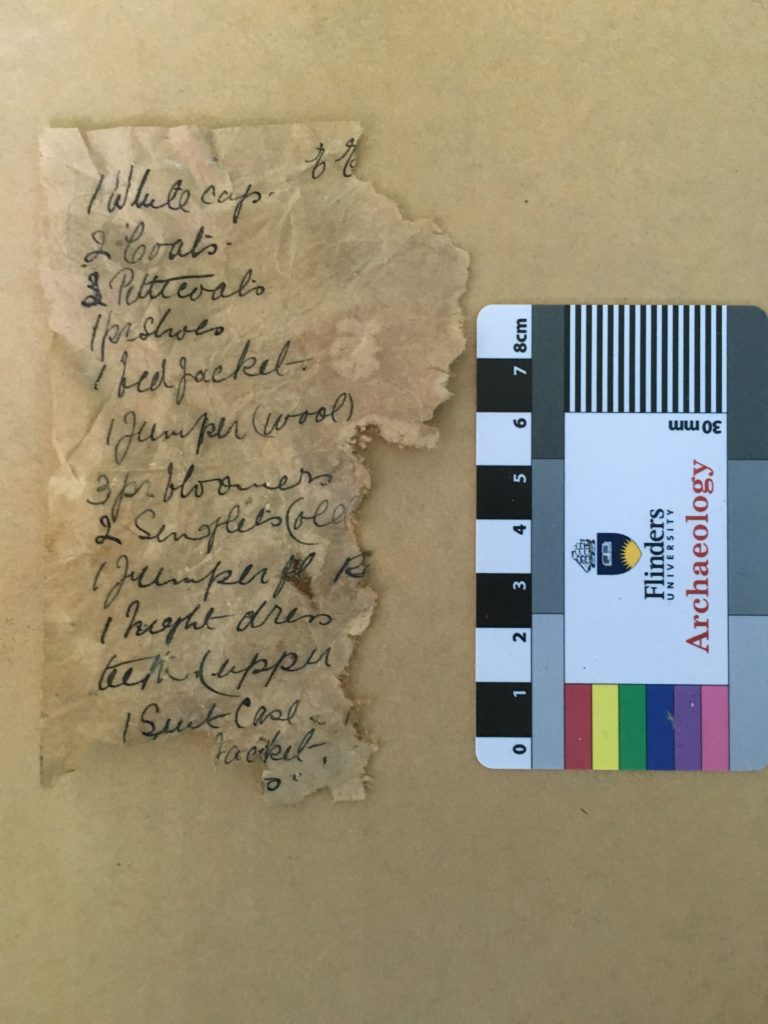
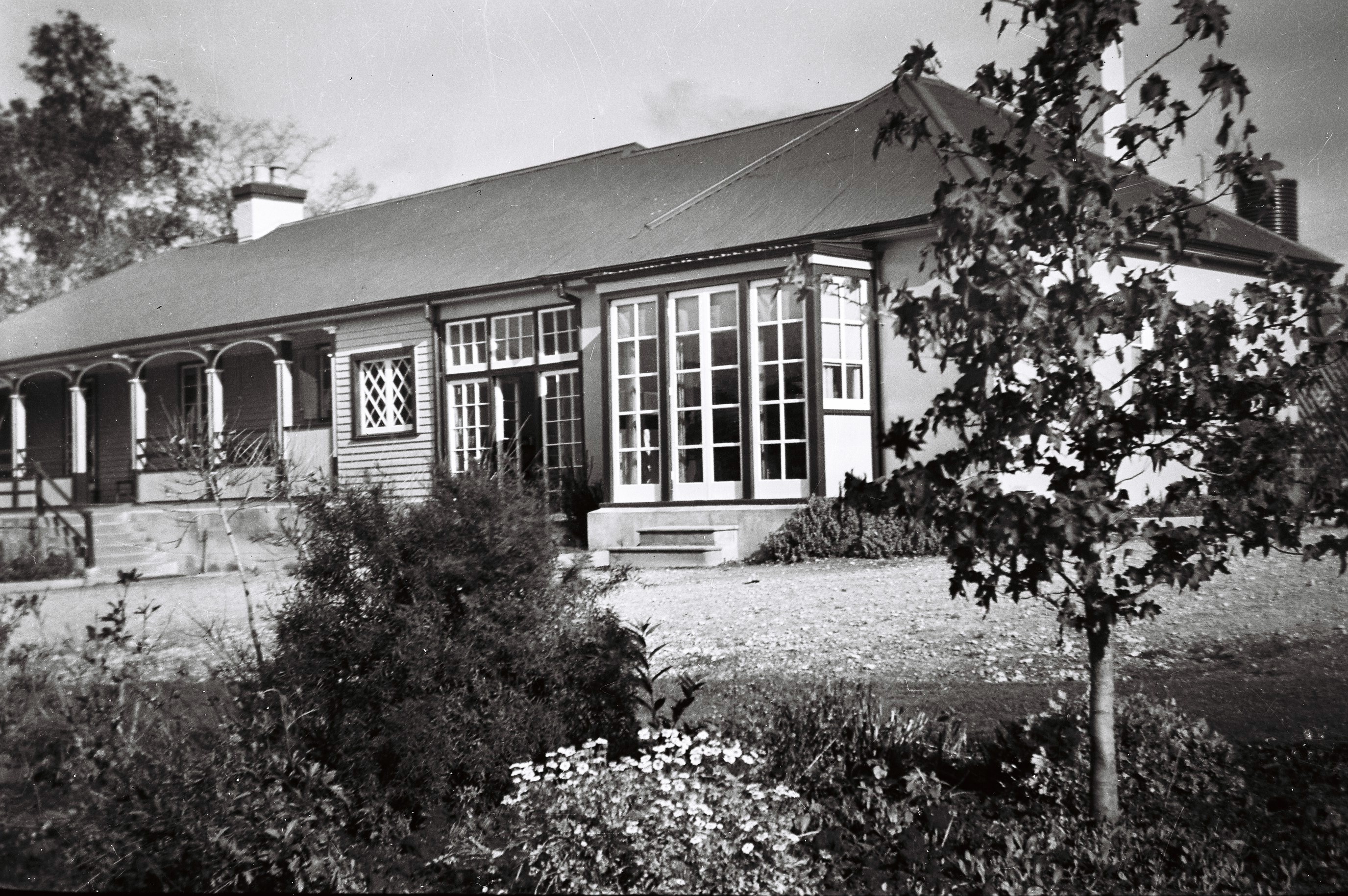
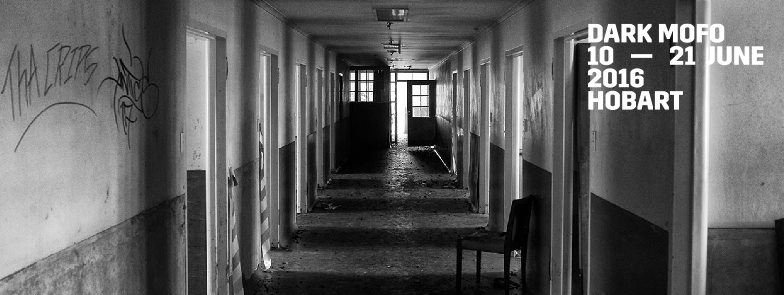
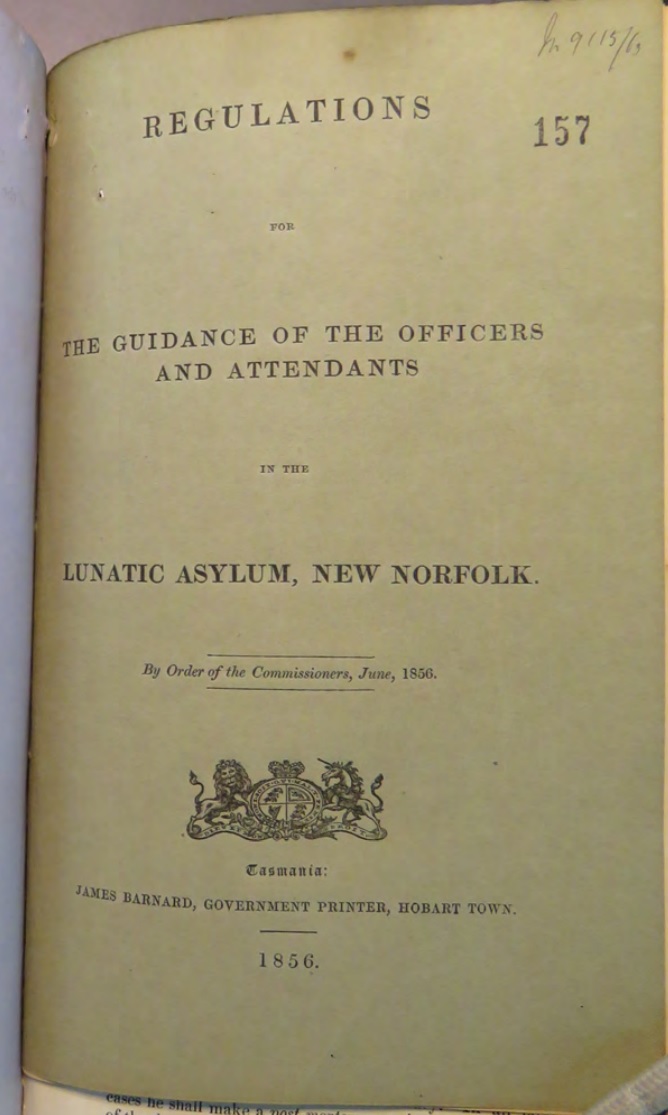
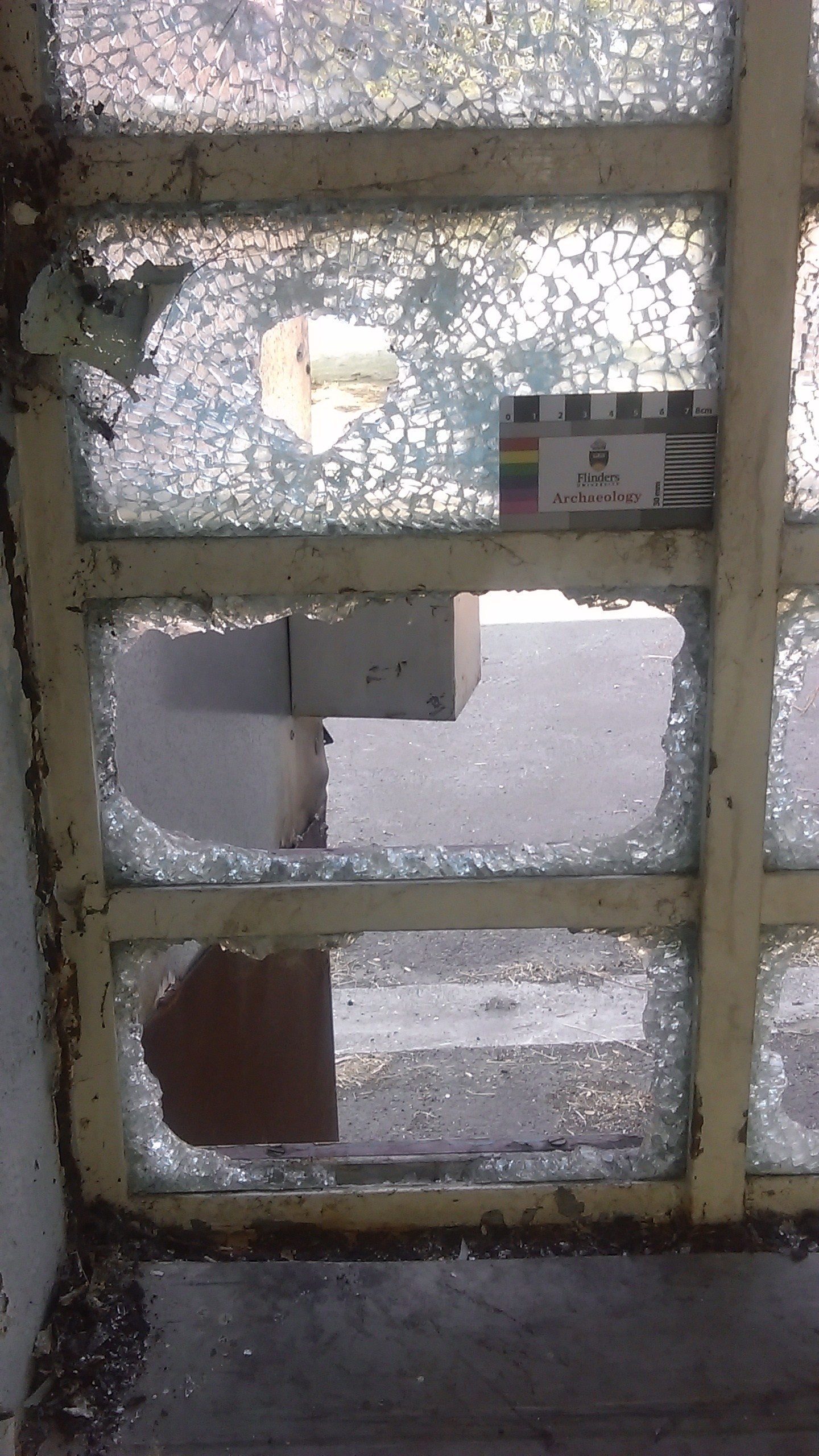 Students of Flinders University have been able to capture the continuing vandalism of Willow Court. While the Barracks and Bronte remain low risk and clear of the damage that previously plagued the site, the same can not be said of Carlton (C Ward), Industrial Therapies and Alonnah Wards (A Ward). Under the protection by the owner, the Derwent Valley Council these buildings remain subject to vandalism including the smashing of many of the one inch thick glass panels that distinguish the property as the old criminal division of Lachlan Park.
Students of Flinders University have been able to capture the continuing vandalism of Willow Court. While the Barracks and Bronte remain low risk and clear of the damage that previously plagued the site, the same can not be said of Carlton (C Ward), Industrial Therapies and Alonnah Wards (A Ward). Under the protection by the owner, the Derwent Valley Council these buildings remain subject to vandalism including the smashing of many of the one inch thick glass panels that distinguish the property as the old criminal division of Lachlan Park.